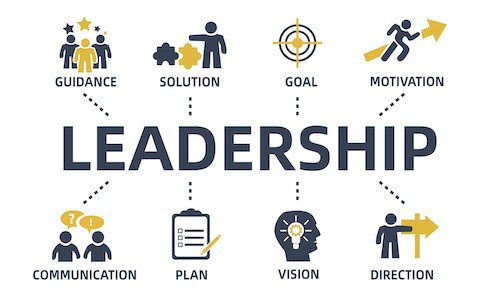Success in leadership does not come from simply holding a title or position. Instead, it stems from a set of key traits that enable individuals to inspire, motivate, and guide their teams toward achieving common goals. The key traits of successful leaders distinguish them from the rest, fostering environments where growth and success are not just goals but realities. In this article, we will explore the key traits of successful leaders and how they contribute to effective leadership.
The Importance of Adaptability
Embracing Change with Confidence
One of the key traits of successful leaders is adaptability. In an ever-changing world, leaders must embrace change and adjust their strategies to meet new challenges. Adaptability allows leaders to respond to unexpected events with confidence and poise.
Why Adaptability Matters
- Navigating Uncertainty: Leaders who are adaptable can guide their teams through uncertain times by adjusting their plans as needed.
- Encouraging Innovation: By embracing change, adaptable leaders create a culture of innovation where team members feel empowered to think creatively.
- Resilience in Challenges: Adaptable leaders can bounce back from setbacks and view obstacles as opportunities for growth.

The Power of Emotional Intelligence
Understanding and Managing Emotions
Emotional intelligence is another key trait of successful leaders. This trait involves recognizing and managing one’s own emotions while also understanding and influencing the emotions of others. Leaders with high emotional intelligence can build strong relationships, navigate social complexities, and make informed decisions.
Components of Emotional Intelligence
- Self-Awareness: Recognizing and understanding one’s emotions and their impact on others.
- Self-Regulation: Managing emotions and reacting appropriately in various situations.
- Empathy: Understanding and considering others’ emotions in decision-making.
- Social Skills: Building rapport and managing relationships effectively.
The Benefits of Emotional Intelligence in Leadership
Leaders who possess emotional intelligence can foster a positive work environment. They are better equipped to handle conflicts, motivate team members, and lead by example. Emotional intelligence helps leaders connect with their teams on a deeper level, creating trust and loyalty.
Vision and Strategic Thinking
Setting a Clear Direction
Successful leaders have a clear vision for the future and the ability to articulate it compellingly. This vision serves as a roadmap for the team, guiding their actions and decisions. Strategic thinking, a critical aspect of visionary leadership, involves anticipating future trends, identifying opportunities, and planning for the long term.
How Vision Drives Success
- Aligning the Team: A clear vision helps align team members with organizational goals, ensuring everyone is working towards a common objective.
- Motivating Team Members: When leaders communicate a compelling vision, team members are more motivated and engaged in their work.
- Driving Innovation: Visionary leaders encourage their teams to think outside the box and explore new possibilities.
Effective Communication Skills
Clear and Concise Messaging
Effective communication is among the key traits of successful leaders. Leaders must communicate clearly and concisely to ensure their messages are understood and their vision is realized. This includes not only speaking and writing effectively but also listening actively.
Key Aspects of Effective Communication
- Active Listening: Paying attention to what others are saying and showing empathy and understanding.
- Clarity and Conciseness: Conveying messages in a straightforward manner without unnecessary jargon.
- Feedback and Encouragement: Providing constructive feedback and encouragement to team members.
Building Strong Relationships Through Communication
Effective communication helps leaders build strong relationships with their teams. By listening to their concerns, providing feedback, and acknowledging their contributions, leaders create a positive and inclusive work environment.
Integrity and Ethical Leadership
Leading by Example
Integrity is a fundamental trait of successful leaders. Leaders with integrity adhere to ethical principles and lead by example, demonstrating honesty and transparency in their actions. This builds trust among team members and creates a culture of accountability.
The Role of Integrity in Leadership
- Building Trust: Leaders who act with integrity earn the trust and respect of their teams, fostering a positive work environment.
- Promoting Accountability: By adhering to ethical standards, leaders encourage team members to take responsibility for their actions.
- Enhancing Reputation: Integrity enhances a leader’s reputation and credibility, both within and outside the organization.
Exploring Professional Insights and Online Entertainment
Poertner.com offers insights and resources related to professional services. For those seeking online entertainment options, discover a wide variety of wolfwinner casino games. Explore a different kind of online experience.
Conclusion
In summary, the key traits of successful leaders—adaptability, emotional intelligence, vision, effective communication, and integrity—are essential for guiding teams to success. By developing these traits, leaders can inspire their teams, foster innovation, and create a positive and productive work environment. Whether leading a small team or a large organization, these traits are the foundation of effective leadership.

